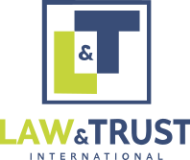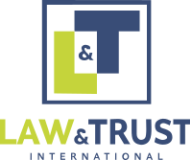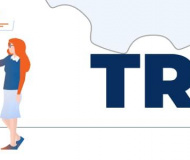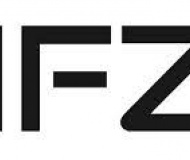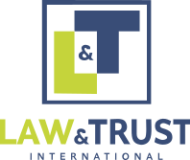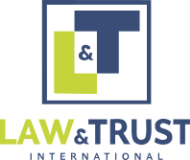Special techniques and methods designed to minimize risks during the exchange of data on ultimate beneficial owners
News:
Date added: 27.12.2016
Ultimate beneficial owner is "the individual who has the opportunity to exert a decisive influence on the management or operational activities of the legal entity directly or through other persons,irrespective of formal ownership.
Ultimate beneficial owner can not be a person who has a formal right for 25% or more of the amount of the charter capital or voting right, but who acts as an agent, nominee owner or performs exclusively intermediary functions with respect to this right.
" * The Law of Ukraine "On Prevention and Counteraction to Legalization of Income Obtained by Criminal Means, Financing of Terrorism and Financing the Spread of Weapons of Mass Destruction" of August 13, 2015.
According to the Financial Action Task Force on Money Laundering (FATF), the notion of beneficial owner applies in relation to natural person or persons ultimately owning or exercising controlling activities with regard to the clients and / or an individual on whose behalf a transaction is carried out.
This concept also covers those individuals who ultimately effectively control a legal entity or organization. FATF guidance on Transparency and beneficial ownership.
Where can the data on beneficial owner be contained?
Here the logic of justified necessity operates. The problem is that the owner's interests can be defended only in the case when the information about the owner is known. Therefore, information sometimes has to be disclosed to public authorities, Registrars and attorneys.
The law on disclosure of information on the beneficial owner involves the following cases in which information may be disclosed: to the country of incorporation, to the registration agent, to the bank in which the account was opened by incorporation, also to the State of registration of the subsidiary company, in legal proceedings in certain categories of state procurement cases, tender purchases, in contracts concluded with state organizations, when buying real estate in a number of countries.
Let’s consider the grounds for the filing of requests for disclosure of information according to the example of Russia and Belize. For example, suspicion in conducting the activities of financing of terrorism.
What are the offenses involved? All those falling within a number of predicate offenses in money laundering, legalization of funds on the basis of Federal Law No. 115-FZ of 07.08.2001“On Countering the Legalization of Income Obtained by Criminal Means and Financing of Terrorism” (as amended on June 29, 2015).
Such a request comes from: Rosfinmonitoring to the service provider (registration agents), to credit institutions, insurance companies, etc.) on the basis of the Money Laundering and Terrorism Prevention Act, as amended from 2014 (in particular, Attachment 1).
What information can be disclosed in the course of the tax audit?
In accordance with Art. 4 of the Convention: "States should exchange any information that may be important for the management or enforcement of actions within the framework of tax legislation." Information exchange 2015: the OECD Convention on Mutual Administrative Assistance in Tax Matters.
The OECD Convention on Mutual Administrative Assistance in Tax Matters. Why will the data exchange not concern the disclosure of the identity of the beneficial owner? It is not necessary to give an answer about the beneficial owner - Article 21 of the Convention emphasizes that the rights and guarantees that are provided to persons by the legislation are not violated.
It is allowed not to respond, in the event that the request is not directed to the merits. There is no obligation to disclose information about the identity of the beneficial owner - the Convention does not directly provide for the obligation of the party to whom the request is directed to disclose information about the beneficial owner of the company.
Comments to this Convention contain general interpretation that does not prescribe, but at the same time does not restrict the right to provide such information and does not oblige banking institutions to disclose information about the beneficial owner.
Unified global standard for the automatic exchange of information about the status of financial accounts (OECD Common reporting standard). Starting from 2017, based on an agreement between the authorized bodies, 52 states announced that they will exchange data on the bank accounts of residents of foreign countries.
For the purpose of constructing effective schemes for exchanging information automatically, the Common Reporting Standard was established under the Convention, which was validated through the Multilateral Agreement between the competent authorities on the automatic exchange of financial information.
What's New? - financial structures (banks and other organizations that receive or transfer funds) should disclose information about account holders and provide this information to the competent authorities of countries.
OECD Common reporting standard: what should Ukraine count on?
Ukraine has not signed the Multilateral Agreement on the exchange of financial information within the framework of the CRS, and at the moment no information is announced about such an intention in state initiatives.
The signing of the Agreement should be followed by the implementation of international standards in the current local legislation. There is no information related to the development of legislative instruments in this direction.


